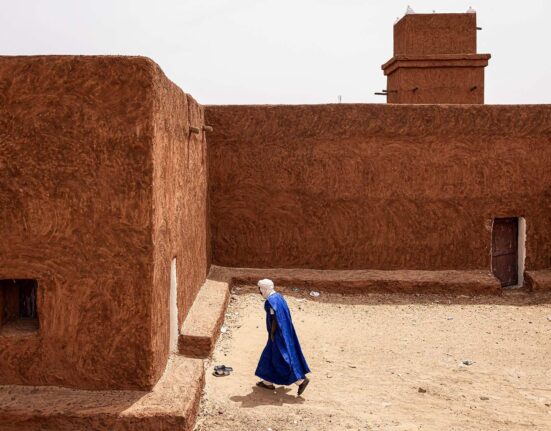The small market town of Mokwa in Nigeria recently experienced a catastrophic event that shook the entire nation to its core. The devastating floods that ravaged the town claimed the lives of at least 200 individuals, leaving a trail of destruction and despair in their wake. As the waters receded, the true extent of the tragedy began to emerge, with another 500 people reported missing. Rescue operations, initially launched in a desperate bid to find survivors, were ultimately called off as hope dwindled.
Mokwa, nestled in the north-central Niger State, bore the brunt of nature’s fury as torrential rains lashed the region, triggering widespread flooding that engulfed the town. This once bustling hub of trade and transportation, located west of Abuja, found itself submerged under the relentless deluge. Known for its vibrant market where farmers from the north sold their produce to traders from the south, Mokwa now lay in ruins, its streets transformed into treacherous waterways.
The magnitude of the disaster was unprecedented, with officials declaring it the worst flood to hit the region in six decades. The aftermath was grim as authorities scrambled to recover the bodies of the victims buried under the debris to avert the looming threat of disease outbreaks. The Niger State emergency service reported that over 3,000 people were displaced, their lives upended in an instant by the unforgiving force of nature.
In the wake of this tragedy, a somber cloud descended over the nation, prompting President Bola Tinubu to extend his heartfelt condolences to the bereaved families and the resilient people of Niger State. In a poignant gesture, he vowed to activate emergency response measures to aid the victims and expedite the recovery process. The National Emergency Management Agency swiftly mobilized relief efforts, providing essential supplies to those affected by the calamity.
The specter of climate change loomed large over the disaster, amplifying the impact of the floods and underscoring the urgent need for proactive measures to mitigate future risks. With extreme weather events becoming increasingly frequent, Nigeria grappled with the harsh reality of a changing climate. The World Weather Attribution highlighted the alarming increase in the likelihood and intensity of such disasters, attributing the surge in fatalities to a confluence of environmental factors.
Amidst the devastation, voices of reason emerged, emphasizing the crucial role of robust infrastructure in averting future catastrophes. Jibril Muregi, the chairman of the Mokwa local government area, emphasized the pivotal importance of investing in critical infrastructure to bolster resilience against flooding and safeguard lives and property. The call for decisive action reverberated across the nation, urging policymakers to prioritize disaster preparedness and climate resilience in their agenda.
As Nigeria grappled with the aftermath of the catastrophic floods, the tragedy served as a stark reminder of the fragility of human existence in the face of nature’s wrath. The harrowing scenes of loss and destruction underscored the imperative of unity and solidarity in times of crisis, rallying communities together in a shared journey of healing and rebuilding. In the crucible of adversity, the resilience and compassion of the Nigerian people shone brightly, illuminating a path towards renewal and hope in the wake of tragedy.









Leave feedback about this